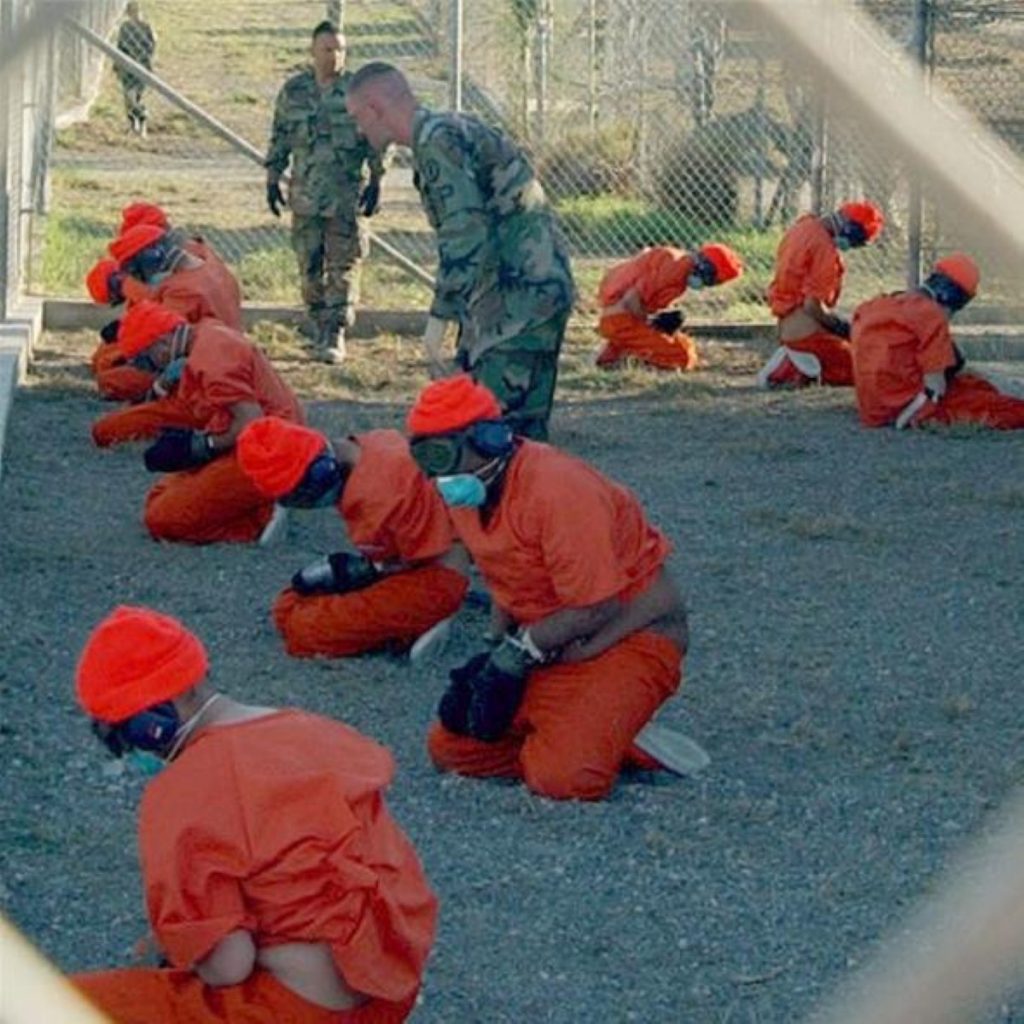Shaker Aamer’s case is a test of the Anglo-American commitment to liberty
By Kate Allen
David Cameron’s visit to the White House appears to have moved things forward over the case of Shaker Aamer.
We were assured the prime minister had raised the case of the former British resident’s incarceration without charge or trial at Guantánamo Bay directly with the president.
And in one of those set-piece bits of political PR, Mr Obama duly said that he was "prioritising" it. Glimmers of hope then, but nothing very concrete.
Mr Aamer’s continuing presence at Guantánamo after all these years is a disgrace. A disgrace firstly for the Americans, but also no shining glory for the UK either, which has ignored his plight for many years and now belatedly seems to see the injustice.
The prime minister’s raising of the case in Washington will be some comfort for his long-suffering family here in Britain. However, he returns without a cast-iron guarantee over Shaker’s release, a timetable for it or apparently any clear agreement over the modalities of his return home.
Next month it will be a full 13 years since Shaker was taken in one of the notorious orange jumpsuits to Guantánamo. The US authorities initially claimed he was an "enemy combatant" in the global war on terror and for years our government more or less accepted this. Yet as the years rolled by, very few legal cases were brought against the detainees and instead the releases began. The US had made a colossal error. They'd swept up hundreds of people on the say-so of Afghan warlords and then realised there was no evidence against the vast majority of them, and little prospect of credible trials.
President Obama promised to close the Bush-era camp after a year in office. He’s failed by a massive margin, but gradually the camp is emptying. At the last count there were 122 still behind the razor wire, including Shaker, whose case is a glaring injustice. The US initially said he'd been in the caves of Tora Bora with Osama bin Laden. Yet the case against Shaker was built partly on the dodgy tip-offs of a notoriously unreliable Guantánamo informant, who was subsequently rewarded with McDonald’s apple pies and other items.

And even that case never materialised. Instead, as long ago as 2007 Shaker was "cleared for transfer" by the camp authorities. So, eight years later, why is he still there? Why is he still stuck behind bars in a place that most of the general public probably imagines was closed down years ago?
The truth is no-one knows. Shaker’s “uncooperative” behaviour at Guantánamo may have played a part, with his role as an unofficial spokesman for other detainees and his unbending resistance to his unlawful detention apparently marking him out. Shaker has also alleged that he's suffered torture and other ill-treatment during his long years at Guantánamo. What will he have to say about this and what will he have to say about the UK's efforts to get him out when he's finally released? It may not be pleasant for the authorities on either side of the Atlantic, but still – free him they must.
In the absence of a proper trial, there is no lawful alternative but to release Shaker from Guantánamo and allow him to return to his family in Britain as soon as possible. It is intolerable that this injustice should continue for even one day longer.
After the horror of Charlie Hebdo we’ve heard many fine words about our "values". One of these values is liberty, prized in the US and in the UK alike. In this the 800th year of Magna Carta, we’re celebrating the right to enjoy our liberty unless we're lawfully detained and tried by our peers. Still languishing in Guantánamo, Shaker Aamer is a continuing test of those values.
Kate Allen is the director of Amnesty International UK.
The opinions in Politics.co.uk's Comment and Analysis section are those of the author and are no reflection of the views of the website or its owners.





-01.png)